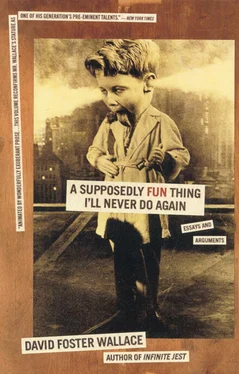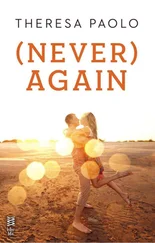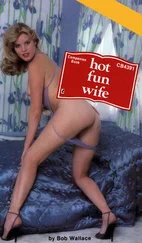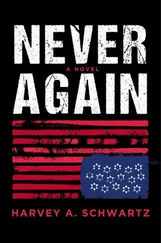trivia tidbit
When Eraserhead was a surprise hit at festivals and got a distributor, David Lynch rewrote the cast and crew’s contracts so they would all get a share of the money, which they still do, every fiscal quarter, in perpetuity. Lynch’s A.D. and P.A. and everything else on Eraserhead was Catherine Coulson, who was later the Log Lady on Twin Peaks . Plus Coulson’s son, Thomas, played the little boy who brings Henry’s ablated head into the pencil factory. Lynch’s loyalty to actors and his homemade, co-op-style productions make his oeuvre a veritable pomo-anthill of interfilm connections.
trivia tidbit
It is very hard for a hot director to avoid what Hollywood mental-health specialists term “Tarantino’s Disorder,” which involves the sustained delusion that being a good movie director entails that you will also be a good movie actor. In 1988 Lynch actually starred, with Ms. Isabella Rossellini, in Tina Rathbone’s Zelly and Me , which if you’ve never heard of it you can probably figure out why.
9a the cinematic tradition if s curious that nobody seems to have observed Lynch comes right out of (w/ an epigraph)
It has been said that the admirers of The Cabinet of Doctor Caligari are usually painters, or people who think and remember graphically. This is a mistaken conception.
— Paul Rotha, “The German Film”
Since Lynch was originally trained as a painter (an Ab-Exp painter at that), it seems curious that no film critics or scholars 42have ever treated of his movies’ clear relation to the classical Expressionist cinema tradition of Wiene, Kobe, early Lang, etc. And I am talking here about the very simplest and most straightforward sort of definition of Expressionist , viz. “Using objects and characters not as representations but as transmitters for the director’s own internal impressions and moods.”
Certainly plenty of critics have observed, with Kael, that in Lynch’s movies “There’s very little art between you and the filmmaker’s psyche… because there’s less than the usual amount of inhibition.” They’ve noted the preponderance of fetishes and fixations in Lynch’s work, his characters’ lack of conventional introspection (an introspection which in film equals “subjectivity”), his sexualization of everything from an amputated limb to a bathrobe’s sash, from a skull to a “heart plug,” 43from split lockets to length-cut timber. They’ve noted the elaboration of Freudian motifs that tremble on the edge of parodie cliché—the way Marietta’s invitation to Sailor to “fuck Mommy” takes place in a bathroom and produces a rage that’s then displaced onto Bob Ray Lemon; the way Merrick’s opening dream-fantasy of his mother supine before a rampaging elephant has her face working in what’s interpretable as either terror or orgasm; the way Lynch structures Dunes labrynthian plot to highlight Paul Eutrades’s “escape” with his “witch-mother” after Paul’s father’s “death” by “betrayal.” They have noted with particular emphasis what’s pretty much Lynch’s most famous scene, Blue Velvet ’s Jeffrey Beaumont peering through a closet’s slats as Frank Booth rapes Dorothy while referring to himself as “Daddy” and to her as “Mommy” and promising dire punishments for “looking at me” and breathing through an unexplained gas mask that’s overtly similar to the O 2-mask we’d just seen Jeffrey’s own dying Dad breathing through.
They’ve noted all this, critics have, and they’ve noted how, despite its heaviness, the Freudian stuff tends to give Lynch’s movies an enormous psychological power; and yet they don’t seem to make the obvious point that these very heavy Freudian riffs are powerful instead of ridiculous because they’re deployed Expressionistically, which among other things means they’re deployed in an old-fashioned, pre-postmodern way, i.e. nakedly, sincerely , without postmodernism’s abstraction or irony. Jeffrey Beaumont’s interslat voyeurism may be a sick parody of the Primal Scene, but neither he (a “college boy”) nor anybody else in the movie ever shows any inclination to say anything like “Gee, this is sort of like a sick parody of the good old Primal Scene” or even betrays any awareness that a lot of what’s going on is — both symbolically and psychoanalytically — heavy as hell. Lynch’s movies, for all their unsubtle archetypes and symbols and intertextual references and c, have about them the remarkable unself-consciousness that’s kind of the hallmark of Expressionist art — nobody in Lynch’s movies analyzes or metacriticizes or hermeneuticizes or anything, 44including Lynch himself. This set of restrictions makes Lynch’s movies fundamentally unironic, and I submit that Lynch’s lack of irony is the real reason some cinéastes — in this age when ironic self-consciousness is the one and only universally recognized badge of sophistication — see him as a naïf or a buffoon. In fact, Lynch is neither — though nor is he any kind of genius of visual coding or tertiary symbolism or anything. What he is is a weird hybrid blend of classical Expressionist and contemporary postmodernist, an artist whose own “internal impressions and moods” are (like ours) an olla podrida of neurogenic predisposition and phylogenic myth and psychoanalytic schema and pop-cultural iconography — in other words, Lynch is sort of G. W. Pabst with an Elvis ducktail.
This kind of contemporary Expressionist art, in order to be any good, seems like it needs to avoid two pitfalls. The first is a self-consciousness of form where everything gets very mannered and refers cutely to itself. 45The second pitfall, more complicated, might be called “terminal idiosyncrasy” or “antiempathetic solipsism” or something: here the artist’s own perceptions and moods and impressions and obsessions come off as just too particular to him alone. Art, after all, is supposed to be a kind of communication, and “personal expression” is cinematically interesting only to the extent that what’s expressed finds and strikes chords within the viewer. The difference between experiencing art that succeeds as communication and art that doesn’t is rather like the difference between being sexually intimate with a person and watching that person masturbate. In terms of literature, richly communicative Expressionism is epitomized by Kafka, bad and onanistic Expressionism by the average Graduate Writing Program avant-garde story.
It’s the second pitfall that’s especially bottomless and dreadful, and Lynch’s best movie, Blue Velvet , avoided it so spectacularly that seeing the movie when it first came out was a kind of revelation for me. It was such a big deal that ten years later I remember the date—30 March 1986, a Wednesday night — and what the whole group of us M FA Program 46students did after we left the theater, which was to go to a coffeehouse and talk about how the movie was a revelation. Our Graduate M FA Program had been pretty much of a downer so far: most of us wanted to see ourselves as avant-garde writers, and our professors were all traditional commercial Realists of the New Yorker school, and while we loathed these teachers and resented the chilly reception our “experimental” writing received from them, we were also starting to recognize that most of our own avant-garde stuff really was solipsistic and pretentious and self-conscious and masturbatory and bad, and so that year we went around hating ourselves and everyone else and with no clue about how to get experimentally better without caving in to loathsome commercial-Realistic pressure, etc. This was the context in which Blue Velvet made such an impression on us. The movie’s obvious “themes”—the evil flip side to picket-fence respectability, the conjunctions of sadism and sexuality and parental authority and voyeurism and cheesy ’50s pop and Coming of Age, etc. — were for us less revelatory than the way the movie’s surrealism and dream-logic felt : they felt true, real . And the couple things just slightly but marvelously off in every shot — the Yellow Man literally dead on his feet, Frank’s unexplained gas mask, the eerie industrial thrum on the stairway outside Dorothy’s apartment, the weird dentate-vagina sculpture 47hanging on an otherwise bare wall over Jeffrey’s bed at home, the dog drinking from the hose in the stricken dad’s hand — it wasn’t just that these touches seemed eccentrically cool or experimental or arty, but that they communicated things that felt true. Blue Velvet captured something crucial about the way the U.S. present acted on our nerve endings, something crucial that couldn’t be analyzed or reduced to a system of codes or aesthetic principles or workshop techniques.
Читать дальше












